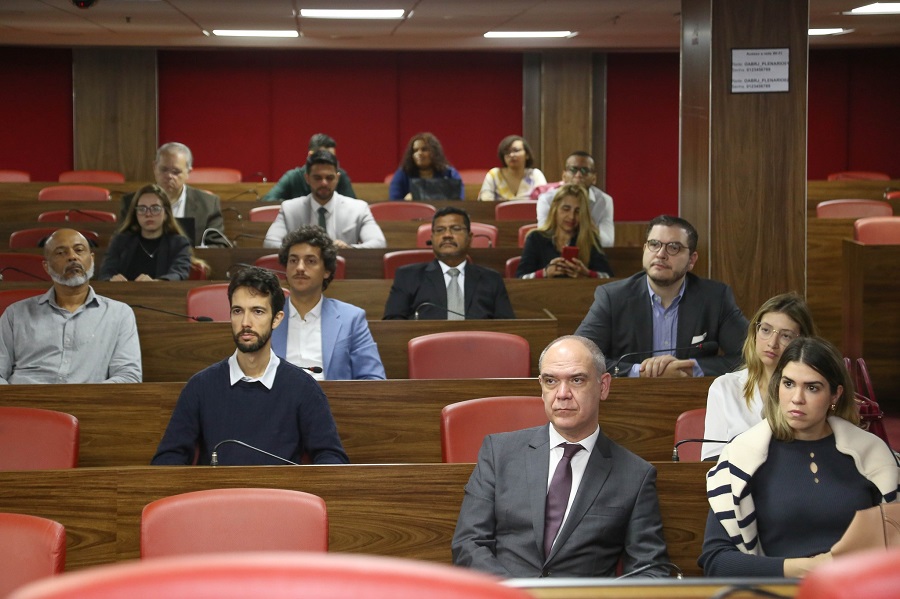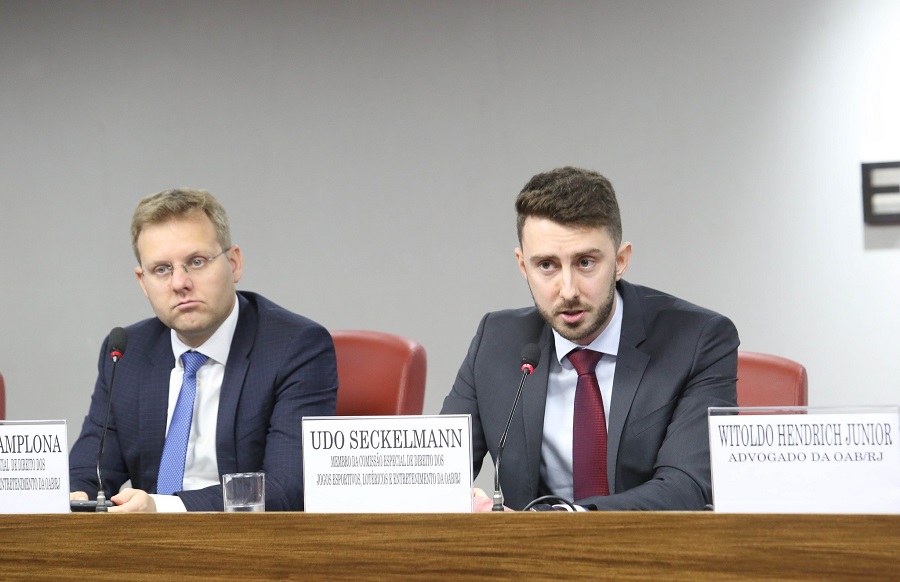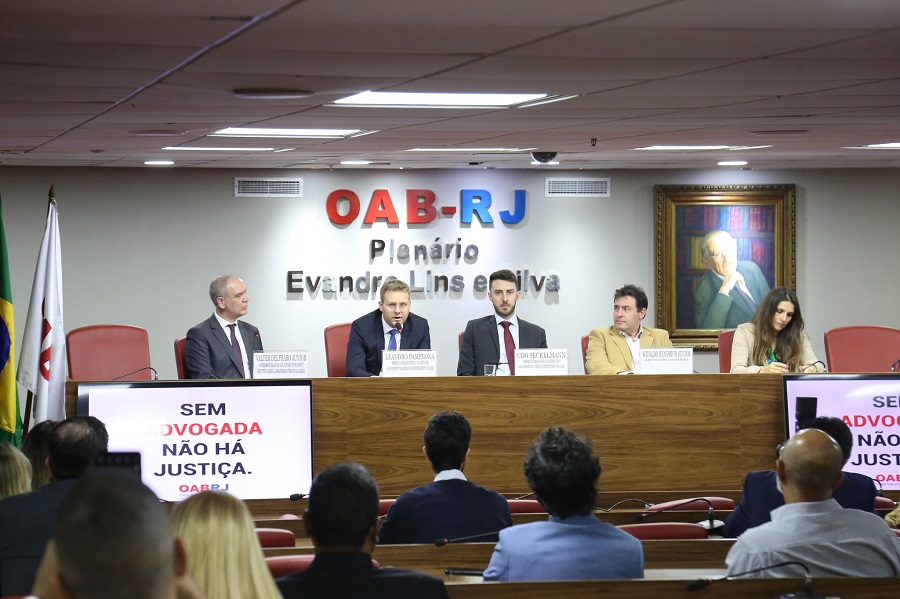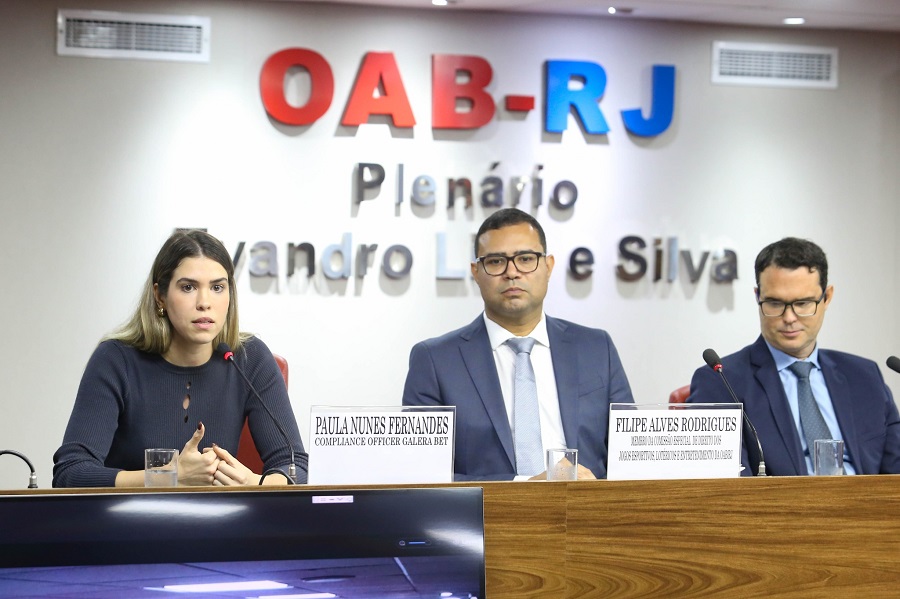The Organization of Lawyers of Brazil in Rio de Janeiro (OABRJ) promoted a debate on the regulation of sports betting.
The event took place days after the Federal Government published, in the Union Official Gazette, a Provisional Measure (PM), as well as sending to Congress the Project that deals with the structure and supervision of the betting market.
At the opening of the event, the president of the OABRJ Special Commission on Sports, Lottery and Entertainment Law, Paulo Horn, responsible for organizing the event, highlighted that the focus on the taxation of sports betting is an intelligent solution.
Since the attempts to ban them were not effectively fruitful.
“The model of prohibition that comes from the law of criminal misdemeanors, passing through the prohibition of casinos in 1946, was not able to reach its objective, which was to prohibit gambling in the national territory”, he assured.
“On the contrary, due to technological evolution, we are playing in the palm of our hands and with the whole world. And it’s not just for the tax. The regulation of gambling generates jobs, income and brings legal security”, he added.
In the text formulated with a view to the immediate regulation of sports betting, the collection tools will come from fees and taxes on company revenues. While the amount will be allocated to the areas of public safety, basic education, sports clubs and social actions.
In addition, companies should promote informational and preventive actions to raise awareness among gamblers and prevent pathological gambling disorder.

Opening table of the event on the regulation of sports betting
The member of the Special Committee on Sports, Lottery and Entertainment Law of OABRJ Filipe Alves Rodrigues and member of Instituto Compliance Rio (ICRio) Cátia Veloso also made up the opening panel.
To deal with the government’s proposal and bring a historical overview, the subsequent panel included the executive secretary of the Ministry of Sport, Juliana Picoli Agatte, who deepened expectations with the regulation.
“The objective of regulating this market is, on the one hand, the question of taxation, which is important to allow the currencies to stay here, so that we do not have money laundering processes and organized crimes related to this discussion”.
“Linked to this, the attractiveness of this market, the extent to which it will be competitive and regulated, whether or not it allows us to migrate from non-regulated to legal. And the central focus in the discussion of match-fixing,” he added.
On the other hand, the member of the Special Committee on Sports, Lottery and Entertainment Law of the OABRJ, Udo Seckelmann, questioned that although the MP is positive in terms of combating the gray market, by blocking websites, prohibiting sponsors and providers of provide services to unlicensed bookmakers in Brazil, the difficulty of implementing these tools exists.

“Portugal and France, which have relatively mature regulations, are unable to combat the gray market”, he stressed.
Panels
The panel on the ideal betting ecosystem also included lawyer Witoldo Hendrich Junior; the Executive of Governmental Relations and Business Development of Gaming Laboratories International Brasil, Valter Delfraro Junior; and organizing committee member Leandro Pamplona.

At the table on sports betting and the protection of Brazilian football, the sponsorship of bookmakers in football teams, the need for representatives of sports betting companies in Brazil, the presence of players in the manipulation of results and the competitiveness with the international market.
Member of the OABRJ Special Committee on Sports, Lottery and Entertainment Law, Filipe Alves Rodrigues noted that mental health – and this includes the pathology of addictions and compulsions – should be a social banner.
“In my view, the government, as a promoter of public policies, should be more concerned with the treatment of compulsion. However, the private sector can act to correct the absence of the public sector”, he pointed out.
“When this is not capable, or does not have the full knowledge to deal with these issues, the private sector can create, in a regulated manner, programs that help with the issue of mental health”, he continued.
Meanwhile, eSports consultant Victor Targino noted that the pending legislation still needs to be widely discussed, as there must be consensus across sectors.
“There is a lot to be discussed from an economic point of view, from a practical point of view and how we are going to carry out this and enable a smooth and fluid operation by the operators, without the clubs failing to gain by exploiting their image”.

The compliance officer from Galera bet, Paula Nunes Fernandes; BNDES lawyer and member of ICRio, Tiago Lezan; the head of General Legal Affairs at SAF Botafogo, Jonas Decorte Marmello; and Vasco SAF’s compliance coordinator, Clarisa Arteiro; and, virtually, the professor and legal director of the National Association of Games and Lotteries, Pietro Cardia Lorenzoni.




















































